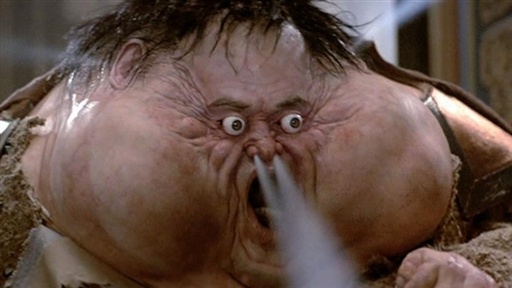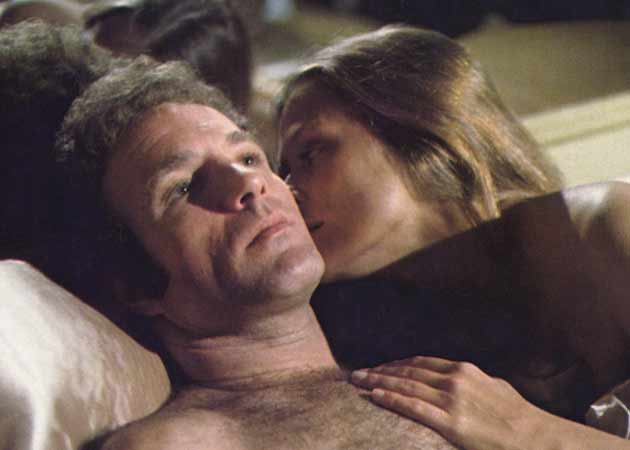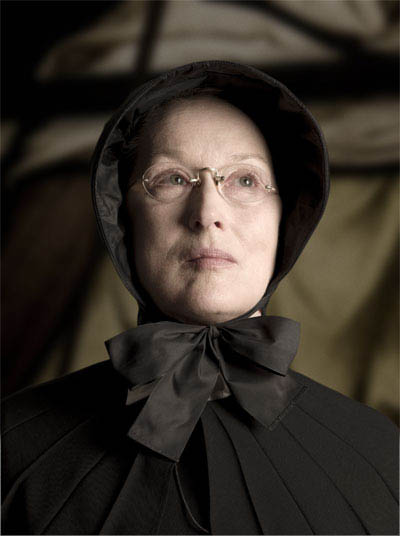 **SPOILERS**
**SPOILERS**Watching Kenji Mizoguchi’s 1953 masterpiece Ugetsu Monogatari, I was reminded not only of the obviously similar Kurosawa films of the same decade, specifically Rashomon, or of the analogous themes of Onibaba, but of films that came later, like the wonderful Werckmeister Harmonies. I remembered that glorious, artistic four minute shot when Janos, the protagonist, walked through the dark streets of his small town when he knew everything was slowly falling apart within himself and his town. I compared it to the opening of Ugetsu, with Mizoguchi’s signature “scroll” shot revealing the houses and buldings and shops, almost dilapidated from the weather and wear. I remembered Sven Nykvist’s cinematography from Andrei Tarkovsky’s The Sacrifice when the philosophical writer Alexander burns his and his family’s own home in order to save the world. The house burns majestically over the course of about seven minutes.
Ugetsu’s influence is as far reaching as most of Akira Kurosawa’s most influential work.It is among the most important films ever made, its influence felt through cinema across the globe. I consider it one of the most beautiful films I've ever seen; the images in this film linger in my mind even while I write this. The stark black and white cinematography is soft, haunting, and ghost-like.
It is about two poor couples; Genjuro and Miyagi, and Tobei and Ohama. Genjuro and Tobei, the husbands, travel to the city of Omizo to sell the pots Genjuro crafts to make a living. They become successful as it is a time of war and the army needs the pots to carry supplies. Tobei dreams of becoming a samurai but is refused from the army as he doesn’t have armor or a spear.

Once they return home, Miyagi begs them not to travel anymore during wartime, but they decide to go anyway, this time with their families to Nagama. Before they leave, however, their home village of Nakanogo is raided. They decide to escape into the forest, but Tobei decides to stay behind to try and steal some of the soldiers’ armor. Genjuro returns to try and find him, and Miyagi follows. They are able to salvage some pottery, which they try and sell at a town across the river. They meet up with Tobei, who has failed to retrieve any weapons or armor. Miyagi is left behind at the shore with her and Genjuro’s child.
Eventually, however, they escape into the woods, only to be encountered by two hungry soldiers. In an attempt to salvage her food for the child, Miyagi is killed by one of them.
At the town across the lake, Genjuro’s pottery sells very well. Tobei uses his share of the fortune to purchase a suit of samurai armor, which he uses to sneak into a samurai clan. Genjuro, meanwhile, is approached by a noblewoman who tells him to take some of his pottery to Wakasa Manor. There, he is seduced by Lady Wakasa who, along with her servant, is the only survivor in the manor after it was attacked by soldiers. The two are then married.
Ohama, now alienated and traveling by herself, is raped by soldiers who leave her tattered and broken. She curses them and her husband. Tobei, meanwhile, kills a high-ranking enemy officer to show his head to a commander who, although suspicious, gives Tobei the armaments he seeks. Ohama becomes a prostitute and works in a rough brothel. Tobei later learns this and, distraught by the fact, gives up his life as a soldier to return home with his wife.

Genjuro, now afraid after learning the noblewoman who approached him earlier was a ghost and that Wakasa Manor is haunted, asks Lady Wakasa to let him return to his family. She refuses at first, but then admits that she and her servant are spirits, and she only returned to Earth to experience love. Genjuro leaves the manor and sees it as it truly is; destroyed by fire. Genjuro, exhausted and weary, returns home to find his son and, unaware she is deceased, his wife’s spirit. He is woken up the next morning by his neighbor, who reveals to him what happened to his wife.
Ugetsu is a fable about the cost of greed. It is about what one must sacrifice to get what they want, and if personal happiness is truly matters as opposed to love and family.
Another film I was reminded of while watching Ugetsu was Ghost with Patrick Swayze and Demi Moore. The infamous pottery scene in that film was certainly inspired by the closing scene in Ugetsu in which Miyagi’s spirit spins her beau’s pottery wheel for him while he works. “I am always with you,” she says.
UGETSU : AThis month's CINEASTES review has been hosted by Matthias Galvin at Framed (http://matthiasgalvin.blogspot.com/)
















